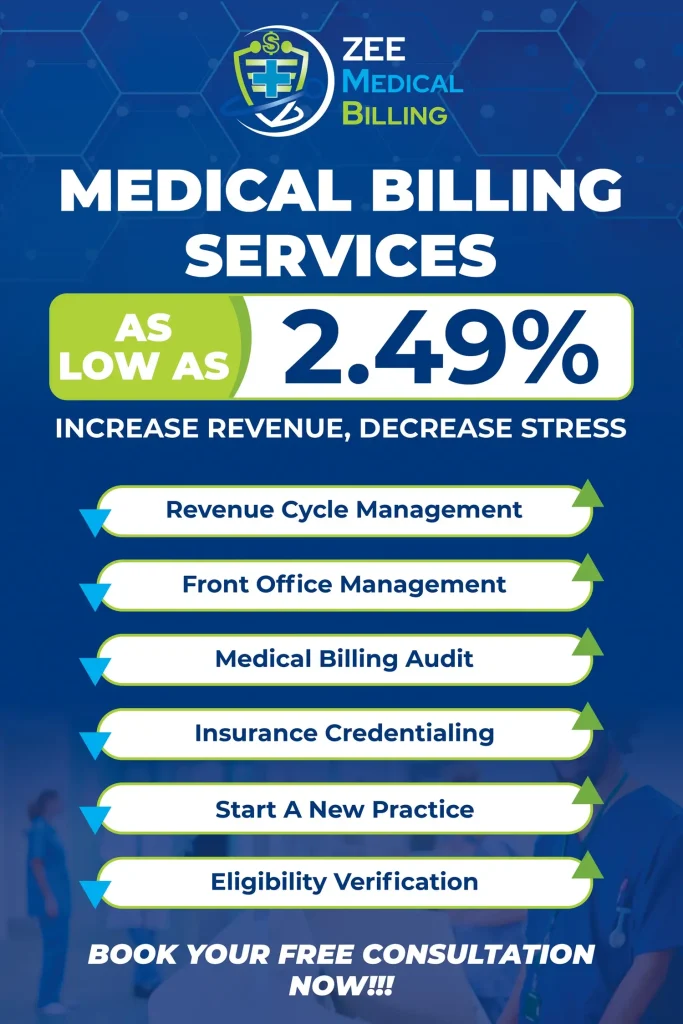Prior authorization (PA) can be a difficult hurdle in the healthcare billing process. It’s a requirement set via insurance plan corporations that require healthcare vendors to attain approval earlier than performing positive strategies or prescribing positive medications. If no longer managed properly, PAs can lead to delays in treatment, declare denials, and misplaced revenue. However, with the proper strategies, scientific billers and coders can navigate this manner successfully. Here are some critical pointers for accomplishing success in scientific billing when dealing with prior authorization.
1. Understand the Insurance Policies
Each insurance plan employer has its own set of regulations and necessities for prior authorizations. It’s fundamental to be acquainted with the insurance plan carriers your exercise works with and comprehend the distinct recommendations for each. Here are some methods to remain ahead:
- Know the Covered Services: Some tactics or medicines might no longer require prior authorization, while others might. Make certain you recognize which services want approval earlier than transferring forward.
- Verify Eligibility: Always affirm the patient’s insurance plan eligibility earlier than beginning any process. This will enable you to test if a prior authorization is wished and keep away from any surprises.
Read More: Top 5 Least Stressful Medical Specialties Unveiled
2. Start the Process Early
One of the largest errors medical billing gurus make is taking too long to begin the prior authorization process. Insurance businesses can take somewhere from a few days to several weeks to method prior authorization requests. As quickly as you recognize a carrier or medication that requires PA, begin the procedure immediately. This ensures you’ll have plenty of time to tackle any potential delays.
3. Be Thorough with Documentation
The more comprehensive and correct your documentation, the smoother the prior authorization method will go. Insurance agencies require exact statistics to approve services. Always ensure you provide:
- Patient History: Complete scientific records help the want for the service.
- Diagnosis Codes: Accurate ICD codes to justify the procedure.
- Procedure Codes: Correct CPT codes that are healthy the carrier being provided.
Complete and specific documentation helps to keep away from back-and-forth with the insurance plan company, speeding up approval.
4. Use Electronic Prior Authorization (ePA) Tools
Many insurance carriers now supply digital prior authorization systems. These structures enable quicker, extra correct submissions and grant real-time responses. Using ePA equipment will assist you:
- Speed up the approval procedure by submitting requests electronically.
- Reduce errors caused by guide processes.
- Track the fame of the prior authorization request, making it less complicated to observe.
Incorporating ePA equipment into your practice can streamline the prior authorization manner and enhance your team’s efficiency.
5. Stay Organized
Prior authorization requests can become a tangled mess if no longer appropriately tracked. Keep organized documents of every PA request:
- Create a System: Use a tracking device (spreadsheet, software, etc.) to display the growth of every request.
- Track Deadlines: Be aware of any time limits and submission timeframes. Some insurance plan businesses can also have precise timelines in which they should respond.
- Follow up consistently: If you haven’t obtained a response or approval within the predicted timeframe, comply with the insurer to maintain the technique moving.
A well-organized device will assist in avoiding errors and ensure timely processing.
6. Prepare for Denials and Appeals
Despite all efforts, some prior authorization requests can also nevertheless get denied. When this happens, don’t panic. Instead, use the following tips:
- Understand the Reason for Denial: Review the denial letter to see why the PA was once rejected. This will furnish valuable information for your appeal.
- Provide Additional Information: If extra documentation or clarification is required, accumulate and submit it promptly.
- File an Appeal: Don’t be afraid to file an appeal. Many denied requests can be overturned with the proper facts and persistence.
Training your group on how to deal with denials and appeals correctly can decrease the influence on your income cycle.
7. Communicate with Your Patients
Clear communication with patients is indispensable throughout the prior authorization process. Keep them knowledgeable of the status of their request and let them know if there are any delays or issues. Transparent communication helps:
- Set Patient Expectations: Patients will be organized for any achievable wait instances and recognize the reasons for delays.
- Ensure Accurate Information: Sometimes, insurance plan businesses want extra affected person data (like up-to-date insurance plan playing cards or authorizations). Make positive your sufferers grant the whole thing crucial to preserve the method moving.
Read More: Medical Specialty Myths Separating Fact from Fiction
8. Train Your Staff Regularly
The world of scientific billing is usually evolving, with insurance plan groups regularly altering their prior authorization requirements. To remain ahead of the game, make sure your group is typically trained on:
- New Insurance Policies: Keep them up to date on modifications in necessities for unique carriers.
- New Technologies: Encourage familiarity with any new ePA equipment or systems.
- Denial Management Techniques: Provide your team of workers with the equipment and expertise to manage denials and appeals effectively.
Investing in education will assist your crew to work extra efficiently and decrease errors.
9. Foster Relationships with Insurers
Building sturdy relationships with insurance plan organizations can assist when problems arise. Having an accurate rapport with representatives can also supply you with higher insight into their approval techniques and enable you to work collectively to resolve troubles quickly. This collaboration can assist with expediting approvals and resolving any challenges that come up during the PA process.
Final Thoughts
Navigating prior authorizations can be daunting; however, with the proper approach, it doesn’t have to be overwhelming. By understanding insurance plan policies, staying organized, using the proper tools, and being proactive, you can enhance the effectiveness of the prior authorization process. With these essential tips, scientific billing authorities can enhance their workflow, reduce denials, and make sure timely reimbursement and maintenance to better financial results for the practice.









